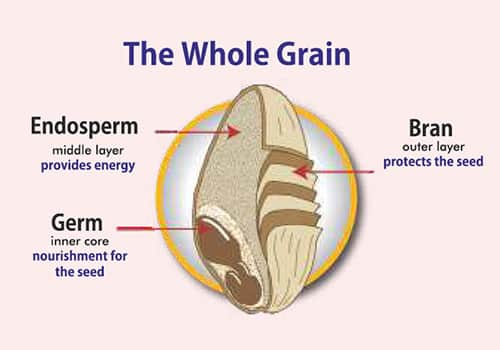
In an era where fast food and sedentary activities dominate, adopting a healthy lifestyle has become a necessity rather than a luxury. A healthy lifestyle encompasses various aspects, including regular exercise, sufficient sleep, stress management, and, most importantly, consuming a balanced diet. By focusing on these key components, individuals can achieve optimal physical and mental health while reducing the risk of chronic diseases.
Importance of a Healthy Lifestyle

A healthy lifestyle is paramount for several reasons. Firstly, it significantly impacts physical health. By maintaining a balanced diet and engaging in regular physical activity, individuals can manage their weight, reduce the risk of cardiovascular diseases, and boost their immune systems. Secondly, a healthy lifestyle has a positive influence on mental health. Physical activity releases endorphins, which are known as “feel-good” hormones, promoting a sense of well-being and reducing symptoms of anxiety and depression.
Components of a Healthy Lifestyle
To establish a healthy lifestyle, one must focus on various components. A balanced diet that provides essential nutrients, regular exercise to keep the body active, sufficient sleep to aid in recovery, and effective stress management techniques are all key elements.
Balanced Diet
A balanced diet forms the foundation of a healthy lifestyle. It involves consuming a variety of foods from different food groups to ensure an adequate intake of nutrients. A balanced diet should include:
- Fruits and vegetables: These are rich sources of vitamins, minerals, and fiber. Aim to include a colorful array of fruits and vegetables in your daily meals. They not only provide essential nutrients but also help reduce the risk of chronic diseases.
- Whole grains: Choose whole grains like brown rice, whole wheat bread, and oats over refined grains. Whole grains are rich in fiber and provide sustained energy throughout the day.
- Lean proteins: Incorporate lean sources of protein such as skinless poultry, fish, beans, lentils, and tofu into your diet. Protein is essential for building and repairing tissues, and it helps you feel fuller for longer.
- Healthy fats: Include sources of healthy fats like avocados, nuts, seeds, and olive oil in your meals. These fats provide important nutrients and contribute to heart health.
- Dairy or dairy alternatives: Opt for low-fat dairy products or dairy alternatives fortified with calcium and vitamin D. These are essential for maintaining strong bones and teeth.
- Hydration: Drink plenty of water throughout the day to stay hydrated. Water is essential for numerous bodily functions and aids in digestion, circulation, and temperature regulation.
Regular Exercise
Physical activity is a crucial component of a healthy lifestyle. It helps maintain a healthy weight, strengthens muscles and bones, improves cardiovascular health, and enhances overall well-being. Aim for at least 150 minutes of moderate-intensity aerobic exercise or 75 minutes of vigorous-intensity aerobic exercise per week. Additionally, incorporate strength training exercises at least two days a week to improve muscle strength and endurance.
Adequate Sleep

Quality sleep is essential for physical and mental health. Aim for 7-9 hours of sleep per night, as it allows your body to rest, recover, and rejuvenate. Establish a regular sleep schedule and create a conducive sleep environment by keeping your bedroom dark, quiet, and at a comfortable temperature.
Stress Management
Chronic stress can negatively impact your health. Find healthy ways to manage stress, such as practicing mindfulness, deep breathing exercises, yoga, or engaging in activities that bring you joy and relaxation. Taking time for self-care and prioritizing your mental well-being is crucial in maintaining a healthy lifestyle.
Benefits of Healthy Food
Consuming healthy food has numerous benefits for your body and mind. Let’s explore some of the key advantages:
Nutrient-rich
Healthy foods, such as fruits, vegetables, whole grains, and lean proteins, are packed with essential vitamins, minerals, and antioxidants. These nutrients support the proper functioning of your body and contribute to overall vitality.
Disease prevention
A well-balanced diet rich in fruits, vegetables, whole grains, and lean proteins can help reduce the risk of chronic diseases like heart disease, type 2 diabetes, and certain types of cancer. These foods provide important nutrients and phytochemicals that promote optimal health and protect against disease.
Weight management

Incorporating healthy food choices into your diet can aid in weight management. Nutrient-dense foods are generally lower in calories and higher in fiber, helping you feel satisfied and reducing the likelihood of overeating. Additionally, regular exercise combined with a healthy diet can help maintain a healthy weight or support weight loss goals.
Improved mood and energy levels
Eating a balanced diet can positively impact your mood and energy levels. Healthy foods provide a steady release of energy, preventing the highs and lows associated with sugary and processed foods. Moreover, certain nutrients like omega-3 fatty acids found in fish and nuts have been linked to improved mood and brain function.
Tips for Incorporating Healthy Food into Your Diet
Now that we understand the benefits of healthy food, let’s explore some practical tips for incorporating nutritious choices into your diet:
Eat a variety of fruits and vegetables
Including a variety of fruits and vegetables in your meals ensures a diverse range of nutrients. Try to incorporate different colors and types of produce, as each offers unique health benefits. Aim for at least five servings of fruits and vegetables each day.
Choose whole grains over refined grains

Swap refined grains like white bread, white rice, and pasta with whole grains. Whole grains are higher in fiber and nutrients, which can aid in digestion, regulate blood sugar levels, and contribute to heart health.
Limit processed and sugary foods
Processed foods often contain high amounts of added sugars, unhealthy fats, and sodium. Limit your intake of processed snacks, sugary beverages, and fast food. Instead, opt for whole, unprocessed foods that are rich in nutrients.
Stay hydrated
Drinking an adequate amount of water throughout the day is essential for optimal health. Water helps transport nutrients, regulate body temperature, and flush out toxins. Carry a reusable water bottle with you to stay hydrated wherever you go.
Healthy Food Choices for Different Meals
Now let’s discuss some healthy food choices for different meals of the day:
Breakfast
Start your day with a nutritious breakfast that includes a balance of carbohydrates, protein, and healthy fats. Opt for options like oatmeal topped with fresh fruits and nuts, whole grain toast with avocado and eggs, or a smoothie made with Greek yogurt, spinach, and berries.
Lunch
For lunch, focus on incorporating a variety of vegetables, lean proteins, and whole grains. Try a salad with mixed greens, grilled chicken, cherry tomatoes, and quinoa. Alternatively, choose a vegetable stir-fry with tofu and brown rice.
Dinner
Dinner is an excellent opportunity to experiment with different healthy recipes. Include a lean protein source like fish, chicken, or legumes, along with a serving of vegetables and a whole grain side. For example, baked salmon with roasted vegetables and quinoa is a nutritious and satisfying option.
Snacks
Opt for nutritious snacks that provide energy and satisfy your cravings. Some healthy snack ideas include fresh fruit, raw nuts, Greek yogurt, vegetable sticks with hummus, or homemade energy bars made with oats, nuts, and dried fruits.
Overcoming Challenges in Maintaining a Healthy Lifestyle
While striving for a healthy lifestyle, it’s common to encounter challenges along the way. Here are some tips for overcoming common obstacles:
Time constraints
.png)
Time can often be a barrier to preparing healthy meals. Plan your meals in advance, batch cook, and utilize time-saving kitchen gadgets to simplify the cooking process. Additionally, consider meal prepping for the week to ensure you have healthy options readily available.
Budget limitations
Eating healthy doesn’t have to be expensive. Plan your meals around affordable ingredients like grains, legumes, and seasonal fruits and vegetables. Purchase items in bulk, compare prices, and look for sales or discounts at local grocery stores.
Social pressures
When socializing, it’s common to face temptations in the form of unhealthy food choices. Communicate your dietary preferences and goals with friends and family, and seek support from like-minded individuals who share your commitment to a healthy lifestyle.
Emotional eating
Emotional eating can be a challenge when trying to maintain a healthy lifestyle. Instead of turning to food for comfort, find alternative ways to cope with emotions, such as engaging in physical activity, practicing mindfulness, or seeking support from a therapist or counselor.
Conclusion
Adopting a healthy lifestyle and incorporating nutritious food choices into your diet is crucial for overall well-being. By focusing on a balanced diet, regular exercise, adequate sleep, and stress management, you can enhance your physical and mental health, prevent chronic diseases, and improve your quality of life. Remember, small changes can lead to significant long-term benefits, so start making healthier choices today.
FAQs
How long does it take to see the benefits of a healthy lifestyle?
The benefits of a healthy lifestyle can vary from person to person. However, you may start noticing positive changes in your energy levels, mood, and overall well-being within a few weeks of adopting healthy habits.
Can a healthy diet prevent chronic diseases?
While a healthy diet cannot guarantee the prevention of all chronic diseases, it plays a significant role in reducing the risk of conditions like heart disease, diabetes, and certain types of cancer.
Is it necessary to eliminate all unhealthy foods from my diet?
It's not necessary to completely eliminate all unhealthy foods from your diet. Instead, focus on moderation and making healthier choices most of the time. Allow yourself occasional indulgences while maintaining an overall balanced diet.
How can I make healthy food choices when eating out?
When eating out, look for menu options that include plenty of vegetables, lean proteins, and whole grains. Opt for grilled, baked, or steamed dishes instead of fried options. You can also request modifications to suit your dietary preferences.
What are some simple exercises I can do to stay fit?
Simple exercises that you can incorporate into your routine include brisk walking, jogging, cycling, swimming, and bodyweight exercises like push-ups, squats, and planks. Choose activities that you enjoy to make exercise more enjoyable and sustainable.






